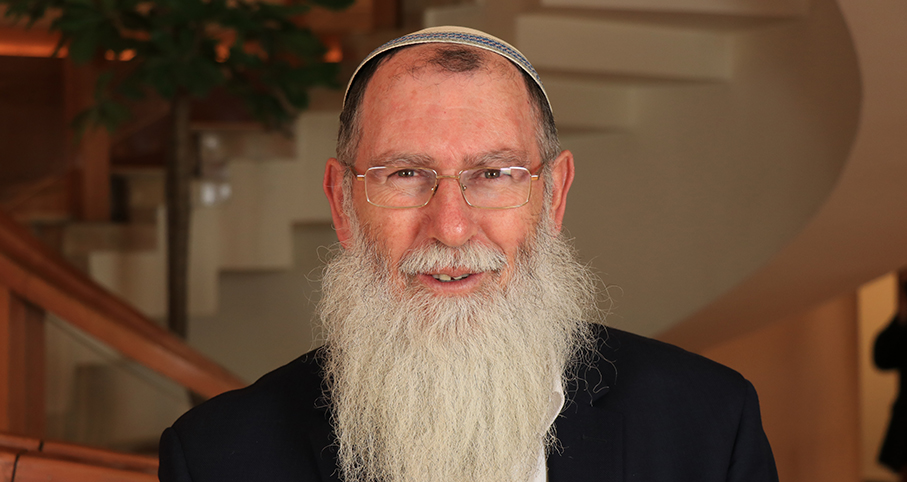Beit Midrash
- Sections
- Chemdat Yamim
- Ein Ayah
Ein Ayah: All forms of service of Hashem that are achieved through Torah, mitzvot, and good attributes are good at their time and are "planted" for future use when His creations will flock to Him. The human eye and intellect cannot see how all the details of a person’s good deeds combine to create lofty things. We cannot see the greatness behind the reason for individual mitzvot. There are four categories of good deeds that elevate the world through the improved spirit of man to the point that the light of Hashem will fill the land: thankfulness for the good one receives, love of kindness, love of peace, and developed wisdom. We will analyze each.
One whose spirit is straight will have a strong recognition of those who did good for him to the extent that he will feel a burning desire to express his appreciation even without seeing how it will help the subject of his gratitude. The mitzva that best develops this attribute is respecting parents. We find children whose thankfulness creates within them strong longings for the opportunity to show their allegiance to their parents, especially after their death. This is compounded when the good they received is great, the benefactor was great, and they realize the importance of thankfulness. The power of this feeling will be much greater in the future when people’s spiritual blindness will disappear and the world will be filled with knowledge. Thus, respecting one’s parents helps push the world in the right direction by impacting individuals and will connect with the broader sense of thankfulness that will exist when all the nations gather to serve Hashem.
The love of kindness which people plant in their hearts will find new expression in the World to Come, a time of light and universal enthusiasm for service of Hashem. That which previously found expression in man providing help for his fellow man will hardly be relevant at a time when there will be no poverty, sickness, and pain. Wisdom will then be easily attained by all, and no one will need to teach his fellow about Hashem. Man’s desire to give to others will then find expression regarding Hashem’s broader creation, improving their conditions, and educating them to the best of man’s ability. Love of kindness will sweep the world to the point that the wolves will live with sheep and tigers will graze with goats. This will become possible due to man’s pure service of Hashem, made possible by the great power of thankfulness.
Great thankfulness will make people realize that kindness is needed not only by those who cannot cope with life’s challenges; even those who are successful require peace. Man will focus his efforts to find the roots of the causes that prevent peace and harmony and strive to remove them and allow Hashem’s light to shine. The search for peace will cause people to reach greater intellectual understanding, which will enable them to also appreciate the divine better. The tendency to bring peace between individual people will not only have its present blessed impact but will also expand to a broader peace in which a nation will not raise up the sword against another nation and they all join each other to serve Hashem in a spirit of brotherhood and peace.
The first three elements focus on man’s emotional nature, but emotion does not suffice to fully actualize these great values. They require wisdom that emanates from the Torah, which is why Torah study is equal to all the values. The elements of Torah that are uncovered by each individual will join onto that which was handed down from one generation to the next to the extent that the seeking of Torah and knowledge will be a pillar in the world that will support all lofty ideals. This helps improve people’s behavior throughout history; when it is complete, it will be the basis of the eternal light and life within man.

"Rav Kook's 'Take' on the Current Turmoil in Israel"
Ein Aya Shabbat 5,22
Rabbi Ari Shvat | Iyar 5783

The Crucial Importance of Patience in Growth
Condensed from Ein Ayah, Shabbat 8:43
Various Rabbis | Adar I 3 5779

An Intellectual Fear of Hashem
Various Rabbis | 6 Cheshvan 5770

















